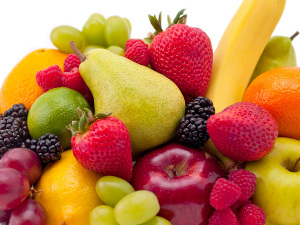Fruit imports have grown despite slowdown, says Dürbeck

With origins dating back to 1896 in what is today the Czech Republic, German fruit distributor Anton Dürbeck GmbH has witnessed its fair share of changes in produce wholesaling. Now led by third and fourth generations of the Dürbeck family, the company has increased its imports recently despite stagnant consumption trends in Eastern European markets, where the firm expanded rapidly after the fall of the iron curtain. At www.freshfruitportal.com, we caught up with one of its managers, Mathias Dürbeck, to discuss the supply issues he faces, from Chilean grapes to South African citrus to Ecuadorian bananas.
Dürbeck emphasizes Germany is still his company's top market; just as well given the economic issues seen in neighboring countries to the east, and in the south where the business sells some volume.

Mathias Dürbeck
"Our import business has grown, particularly in the last year, even though we see there is a certain reservation from the consumer to spend," he told www.freshfruitportal.com during Fruit Logistica.
"We see there has been a bit of a slowdown, particularly in Eastern European countries, and in the Southern European countries, but Germany is performing quite well and we are quite happy with that.
"When all of the economies recover and the currencies stabilize, I think that will help, but it will take a little while."
And Dürbeck has faced his share of challenges from supplying countries as well, particularly Chile, whose issues with frosts and strikes have led his company and others to seek out more of the fruit from India.
"Already last year was a very strange year for the Chilean grape season, in particular with the strike that delayed things significantly and then led to quite a few quality issues by the end of the season. But overall the overseas grape season was a pretty good one.
"This year's going to be a very funny one again, not only because of the strike, but mostly because of the frost issue. Grapes will be something that'll be very scarce here. It's a strange situation.
"We're already sourcing from more alternative countries. India will become much stronger for the European market than in years been before and over the years it has increased significantly."
He added that India had completely overcome its pesticide residue issues with German retailers.
"Now everybody, all my competitors are doing the same, is starting to source more grapes from India to offset any shortage that we might see from Chile."
He said he hoped the situation would change for the better for the sake of the Chilean population.
"I’m a positive person. I hope this will change because it’s not in the interests of the people," he said.
He emphasized that supply shortages were not just expected from Chile, but also because of frosts in South Africa and Argentina.
"Their [South African grape] volumes were down but they are now slowly recovering – it is not yet clear where to total volumes will end up but we believe that they will not be as short as some people have predicted. They will be below last year's anyhow.
"Peru is getting stronger and stronger; this is going to be the major competitor for Chile and South Africa in the next couple of years. That's a major player in the future that needs to be watched."
Elsewhere in South Africa, Dürbeck mentioned the situation surrounding European Union citrus black spot (CBS) regulations for the supplier were very frustrating.
"That's particularly as there are ongoing discussions as to whether it really spreads or it doesn’t spread, so whether it was really necessary to make the ban or not.
"There are also regions in South Africa that are completely free so they are now suffering from what happened last year. South Africa had more than the five strikes allowed by the European Commission, so it was obvious that there would be a reaction.
He said without South African citrus, the market would not have so many options to source from.
"You can go to Argentina and they do lemons already, but if South Africa were cut out, it would be difficult to offset it with other countries.
"Chile has some production but the volumes would never be the same, and the situation would be much more expensive. It would have an immediate impact on consumption."
In apples, he said last year was good for overseas imports but this year would be different due to expectations for a larger crop from Europe.
"This year with the big crop in Europe it's [Southern Hemisphere supply] probably going to be much less and later anyhow, and you have to do what is required and your producers have to do the same."
In tropical fruit, which is another of Dürbeck's specialties, he mentioned the market was tough and fairly saturated for sourcing fruit from Costa Rica, while Ecuador has become a difficult country to work in due to the South American nation's customs duty disadvantage for the EU.
"That's besides the logistical difficulties they [Ecuador] have for being located on the other side of the Panama Canal, and Central American countries have increased production while Ecuador has decreased for a clear reason, because because in certain respects they can be more productive than Ecuador despite the fact they have to spray more against Black Sigatoka than Ecuador.
"In Central America you can have 50-60 cycles a year or more, while in Ecuador, depending on the region, it’s between 15 and 35 at the max. It should be a positive, but still cost-wise Ecuador has become more expensive and more difficult to work with.
"I think all fruit is tough. Sometimes it’s better, sometimes it’s worse, but pineapples have had a very difficult market in recent years. There’s a lot of production for Costa Rica."















































